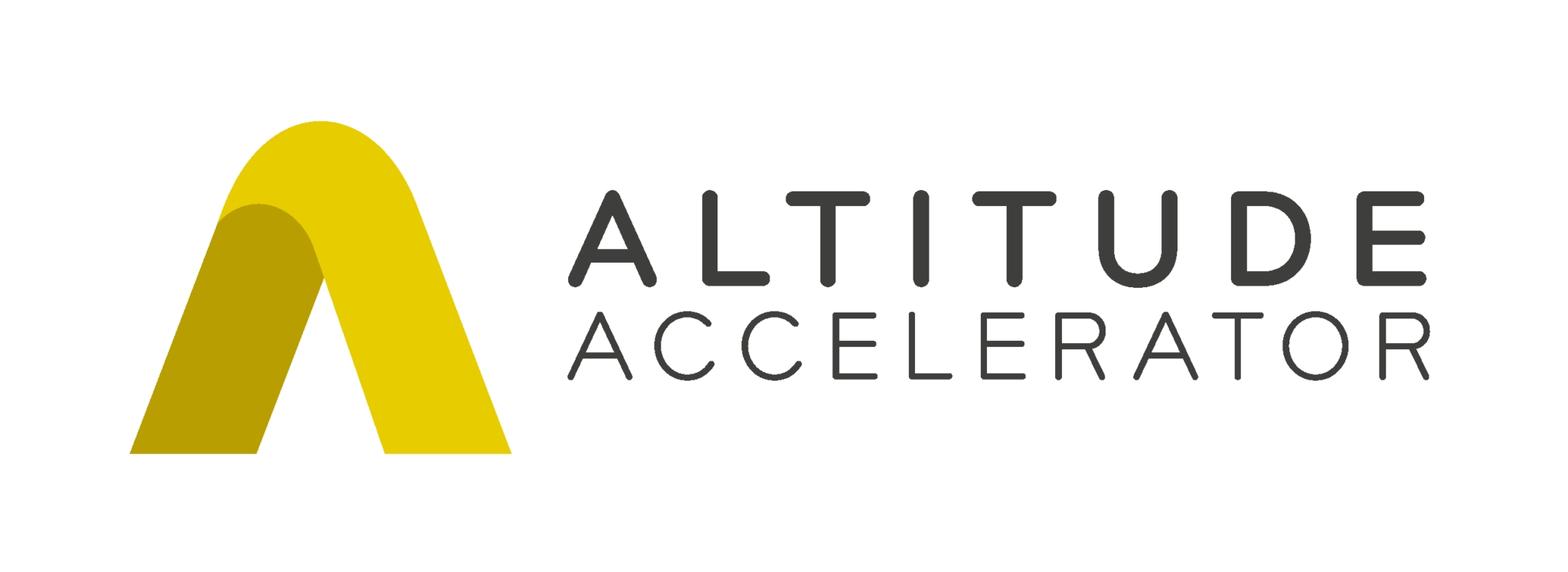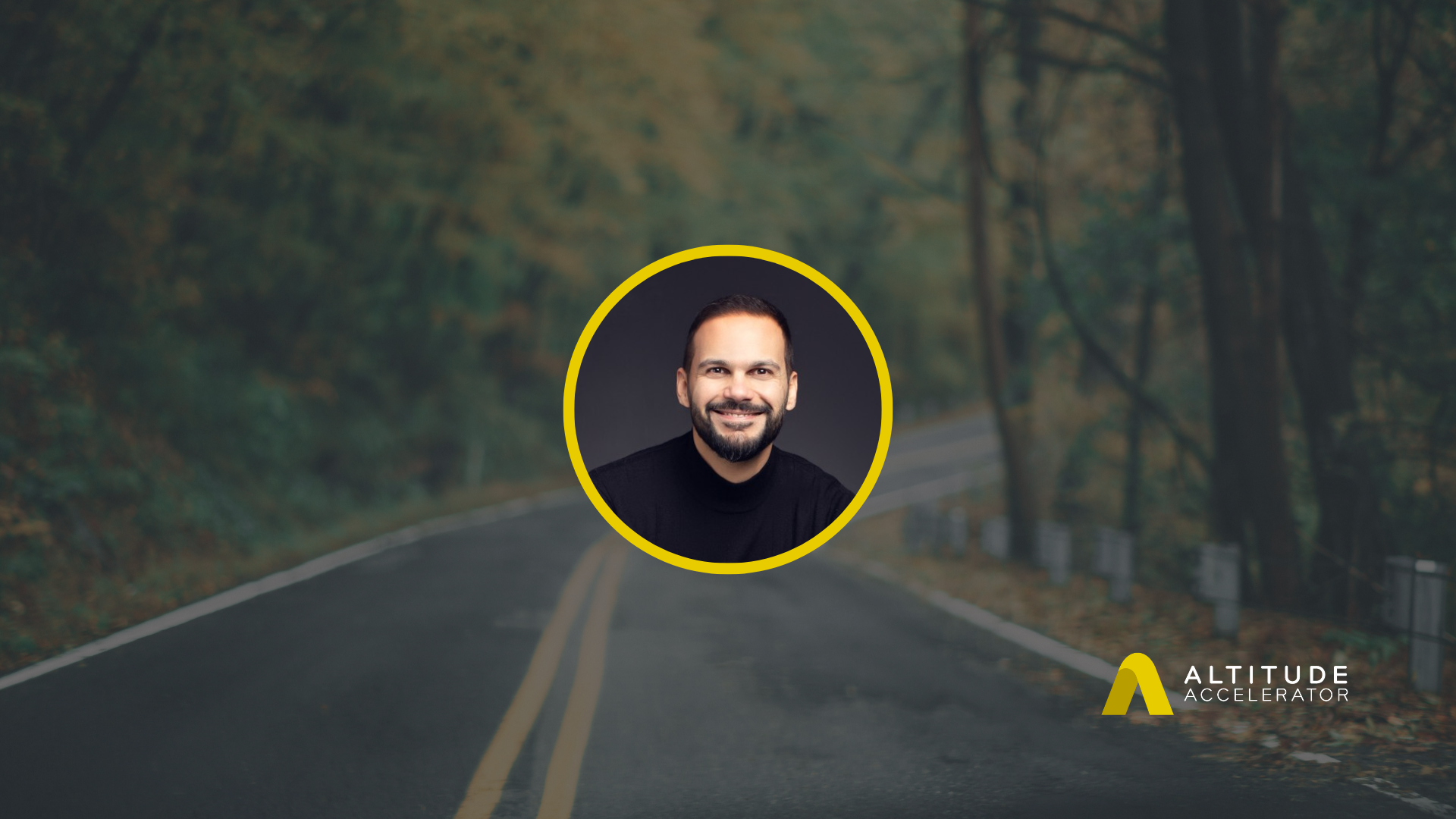by Mehr Sokhanda
The path of entrepreneurship rarely follows a straight line, but for some founders, the journey involves completely reimagining their professional identity. At a recent “Ask the Founder” event, we hosted Moatassem Moatez, founder of MyCourier, who shared his remarkable transition from corporate executive to delivery driver to successful logistics entrepreneur. His journey offers valuable insights about resilience, adaptability, and the realities of building a business in a new country. From navigating the challenges of a failed first venture during COVID-19 to building a 200-person strong logistics company, Moatez’s story presents a tale that many founders encounter when it comes to the importance of market validation and timing.
When Moatez arrived in Canada with 15 years of corporate experience from Dubai, he brought what he thought was a foolproof plan. His first venture, Yellow Box, was an online retail business selling outdoor products. The timing proved catastrophic – launching in February 2020, just one month before COVID lockdowns. “I tried everything possible – discounts, buy-one-get-one-free promotions, every strategy in the book. But nothing worked. Sales were just impossible.” Eventually, he donated all inventory to a nonprofit company, facing what he terms his “dark time.”
Finding Opportunity in Crisis
The pivot to logistics came from an unexpected source – a phone call with a grocery store that couldn’t handle delivery demands during COVID. “I called a grocery store to have some items delivered. The response was simple but eye-opening – they had no delivery capacity whatsoever. That’s when it clicked.” This simple interaction sparked what would become MyCourier.
Instead of immediately launching a full operation, Moatez took a ground-up approach: “I took myself on, put my vest on and I said I will start delivering myself. I need to understand this industry.” He worked all shifts – morning, night, whatever was needed – to gain firsthand experience of the industry. This period taught him valuable lessons about performance and value creation: “My tips often exceeded my pay as a driver… because when you truly understand and deliver value in any role, no matter what it is, people naturally recognize and reward that commitment.”
Building Strong Foundations
In establishing MyCourier, Moatez’s approach to landing Amazon as a client demonstrates the importance of thorough preparation and persistence. “I spent an entire week crafting that single email. I researched everything – their values, their principles, their definition of a successful partnership. Every article, every piece of information about them was meticulously analyzed to understand what they were looking for.”
The waiting period tested his resolve: “A day, a week, a month went by. Nothing came.” But eventually, this meticulous preparation led to discussions, interviews, and due diligence processes with Amazon. By the end of 2020, they had signed an agreement for deliveries in downtown Toronto.
Revenue First: A Critical Insight
One of Moatez’s most emphatic pieces of advice is avoiding the common startup mistake of prioritizing infrastructure over revenue. His early days involved knocking on doors at every plaza, asking retailers if they needed delivery services. “I used to do the actual deliveries myself as well as the business development.”
“Many people start a business with an expense list as their first focus. But what truly matters is whether someone is willing to pay for your product or service. Until someone pays you, it’s just a hobby—not a business.”
The Power of Action Over Perfect Planning
While preparation is important, Moatez advocates for moving forward even with incomplete information: “Don’t dwell a lot on ideas in your mind. Take it forward, even if it’s 60-70% of it.” His experience demonstrates the greater value of taking action. “I took action and registered the company, MyCourier, with the goal of exploring the last-mile delivery industry. MyCourier wasn’t truly ‘built’ at that time—it was just me, and the company was only just born.”
The distinction between theoretical planning and practical execution became clear through his hands-on approach. While building MyCourier, he encountered numerous operational challenges – problems with vehicles, hiring, insurance – but chose to solve them while keeping the business running. “The most important thing is solving problems while you’re still in motion. I was still working on-site as a dispatcher, ensuring trucks and drivers were on the road and supporting them throughout the day—all while building the business itself.”
Handling day-to-day operations while building systems for growth proved crucial as Moatez would soon realize, “I didn’t have the full understanding of the last mile delivery. But I said I’ll just move forward even if it’s one step, it will help take action.” His lesson? Waiting for perfect understanding or perfect conditions often leads to missed opportunities.
Managing the Emotional Journey
Moatez emphasizes the importance of handling the emotional aspects of entrepreneurship: “The emotional side kicks in because, early on, you often find yourself reflecting on previous roles. It’s natural to feel connected to those experiences, but that’s when I knew I needed to shift gears quickly and stay focused on the present.” This emotional challenge was particularly evident during his transition from corporate executive to delivery driver. He notes that emotions can snowball if not managed properly and stresses the importance of accepting these feelings while not letting them overtake you. The key, he found, was to acknowledge the emotions but stay focused on performing well in whatever role you currently have, as performance and value creation can help shift your mindset from what you were to what you’re becoming.
The Value of Community Engagement
Early community engagement was an area where Moatez believes he could have improved: “I thought I knew everything myself.” He now actively engages with various community organizations, including the Oakville Chamber and Altitude Accelerator, emphasizing that “the more you engage with the community, the more the community will give you as a reward.” His experience with Altitude Accelerator, in particularl, demonstrates this value: “Through the program, I received guidance on pivoting the company’s software development and I connected with industry leaders who helped shape my understanding of technology and software development.” This community engagement not only provided practical support but also helped create a network of vendors, suppliers, and mentors who contributed to MyCourier’s growth.
Problem-Solving as a Business Strategy
Moatez’s approach to problem-solving represents a fundamental shift in how entrepreneurs might view challenges. Rather than seeing problems as obstacles, he advocates viewing them as opportunities for business growth and client value creation. “Every problem is an opportunity. When a problem arises, I remind myself to be grateful and ask for the strength to solve it, because solving problems is what people pay us for. I tell my team: when we face a challenge, we’re actually fortunate. Clients don’t pay us when things are smooth—they pay us when things are tough, and they need our help.”
This problem-solving mindset manifested in several ways throughout MyCourier’s growth:
- Initial Market Entry: When he discovered grocery stores struggling with delivery capacity, he saw a problem to solve rather than a barrier to entry.
- Operational Challenges: “There were countless challenges. It was a new industry, a new environment. I faced issues with vehicles, hiring, and insurance—problems I had to solve on the spot, one by one.”
- Client Solutions: His approach to working with Amazon demonstrated how solving complex operational problems could lead to stronger client relationships. He focused on “trying to think how can I optimize? How can I make this a real, genuine process driven business that can grow and eventually add value to the team that is there for the client and for the community?”
The key to this approach is maintaining momentum while solving problems: “You’re solving problems while you’re still walking.” Rather than halting operations to perfect solutions, Moatez advocates for continuous improvement while maintaining service delivery. This approach helped MyCourier evolve from a single-driver operation to a comprehensive logistics solution provider.
His success with this strategy came from three main principles:
- Quick Response: Rather than getting overwhelmed by problems, tackle them immediately while maintaining operations.
- Value Creation: Focus on how solving each problem creates value for clients and strengthens the business.
- Systematic Approach: While solving immediate problems, work on developing systems and processes to prevent similar issues in the future.
This problem-solving approach eventually led to innovative solutions, including the development of their own operations management software. “We developed in-house software that enhanced our operations, bringing us closer to what I call operational excellence through dynamic performance improvement.”
For entrepreneurs following this path, Moatez emphasizes that the goal isn’t to avoid problems but to approach them as opportunities for growth and value creation. This shift from seeing problems as obstacles to viewing them as opportunities for business development has been crucial to MyCourier’s success and continues to drive their innovation and growth.
Scaling with Purpose
MyCourier’s growth presents a methodical approach to scaling. From handling basic deliveries, the company expanded into furniture delivery, developed proprietary software for operations management, and grew their team to 200 people. This evolution wasn’t just about adding services, as Moaz highlighted, it focused on “I focused on optimizing and building a genuine, process-driven business that could grow sustainably, adding value for the team, serving the client, and benefiting the community.”
Looking Forward
Today, MyCourier operates with a diverse fleet handling everything from small parcels to furniture delivery. The company has developed its own software for operations management, demonstrating how starting small and building systematically can lead to significant innovation.
For entrepreneurs at any stage, particularly those navigating new markets or transitioning from corporate careers, Moatez’s journey reveals how to effectively develop a building sustainable business. His emphasis on revenue first, hands-on learning, and gradual scaling provides a realistic approach to business development that can be adapted to various contexts and industries. As he notes, “Every country has its own formula. Every country has its own main plan. So, if you’re only stuck in what you can do, this is where the whole snowball will happen.”
Altitude Accelerator is committed to supporting cleantech founders through expert advisory services and specialized programming. Our organization offers valuable resources and guidance to help innovators in the clean technology sector thrive and grow. If you’re interested in learning more about how we support early-stage founders, please visit our website. We are now accepting applications for Investor Readiness and Market Readiness. To learn more about our programs please check out the program page.

